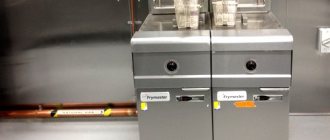Content
The job description of an auxiliary worker determines the labor relationship. It contains types of employee responsibilities, functional responsibilities, rights, chain of command, occupation and dismissal, requirements for experience and education.
The document is prepared by the head of the department. Approved by the general director of the organization.
The standard form set out below can be used when drawing up a job description for an auxiliary worker in production, construction, agriculture, etc. A number of provisions of the document may differ depending on the specifics of the organization.
https://youtu.be/JVA2Z7B44Tg
Requirements for candidates for the position and standard job responsibilities of a general worker
Since the position of a general laborer does not require any special qualifications or training, the requirements for candidates for this position are not very high. As a rule, to get a job as a general worker, you only need a secondary education (school) and the ability to do physical work. In most cases, even work experience is not required.
Typical job responsibilities for a handyman typically include:
- Carrying out auxiliary and auxiliary work in the assigned area.
- Loading, unloading and unloading, as well as moving various cargoes.
- Cleaning the designated area, workshop, warehouse, etc.
- Washing floors, containers, products, windows, dishes, etc.
Thus, when creating a job description for a general worker, you first need to determine in which area an employee of this specialization will work. This makes it possible to more clearly define the labor functions that he must perform, and ultimately facilitates not only the preparation of the instructions itself, but also the process of labor relations subsequently.
Sample of a typical job description for an auxiliary worker
I. General provisions
1. An auxiliary worker belongs to the category “workers”.
2. An adult person with complete secondary education is appointed to the position of an auxiliary worker, without presenting any work experience requirements.
3. During the absence of an auxiliary worker, his responsibility, functional duties, and rights are assigned to another official, as reported in the organization’s order.
4. The auxiliary worker is directly subordinate to the head of the administrative and economic department.
5. The appointment or dismissal of an auxiliary worker is made by order of the general director of the organization on the recommendation of the immediate superior.
6. An auxiliary worker is guided in his activities by:
- this job description;
- orders, instructions from management;
- Charter, internal labor regulations, other governing acts of the organization;
- legislative acts of the Russian Federation.
7. An auxiliary worker must know:
- methods of unloading, loading, moving, placing cargo, including fragile, fire and explosive goods;
- cargo sorting rules;
- methods of cleaning premises, equipment, inventory;
- loading rules, cargo transportation standards;
- arrangement of containers, methods of securing goods that are transported;
- location, quantity of material assets, property, inventory;
- standards for the use of labor mechanization tools;
- hygiene and sanitation requirements for the maintenance of the premises;
- organization of the department's work;
- instructions, resolutions, orders of management;
- methodological, regulatory, and other guidance materials that relate to the activities of an auxiliary worker;
- standards of business etiquette, treatment of employees and visitors of the organization;
- energy and resource saving mode;
- the procedure for carrying out work during sanitary days and hours;
- basics of labor legislation of the Russian Federation;
- regulatory documents on labor protection, fire safety, industrial sanitation.
II. Job responsibilities of a auxiliary worker
The auxiliary worker performs the following job duties:
1. Keeps utility rooms and storage areas for inventory items clean.
2. Receives tasks and carries out orders from the immediate superior.
3. Prepares his own workplace.
4. Receives inventory and performs work with it.
5. Unloads, loads, moves cargo manually or using mechanized means.
6. Cleans the territory, access roads, premises.
7. Correctly uses work tools and equipment of the organization.
8. Provides assistance in transportation, warehousing, and movement of goods.
9. Fulfills and complies with the requirements of regulatory and governing documents.
10. Eliminates the causes and conditions that cause equipment downtime, accidents, and other damage.
11. Complies with and fulfills the requirements of safety regulations, other regulatory documents on labor protection, fire safety, industrial sanitation, and labor legislation.
12. Contributes to the safety of equipment and inventory.
13. Complies with production discipline and internal labor regulations.
14. Takes into account work operations.
III. Rights
An auxiliary worker has the right:
1. Send proposals to management to improve your work and the activities of the organization.
2. Receive the necessary information to perform your official duties.
3. Require management to create normal conditions for the execution of their powers and the safety of material assets.
4. Not perform functional duties if there is a danger to life or health.
5. Receive information about the decisions of the organization’s management regarding the activities of its department.
6. Make independent decisions within your competence.
7. Inform your immediate supervisor about identified shortcomings in the organization’s activities. Make proposals for their elimination.
8. Enter into communication with the personnel of the organization’s structural divisions on work issues.
9. Make proposals to management that relate to the work of the organization.
IV. Responsibility
The auxiliary worker is responsible for:
1. Violation of labor discipline requirements, safety standards, internal labor regulations, fire protection.
2. Causing damage to the organization, its counterparties, employees, or the state.
3. Consequences of your decisions, independent actions.
4. Violation of the requirements of the organization’s governing documents.
5. Illegal handling of trade secrets, personal information of employees, disclosure of confidential data.
6. Providing management and employees with knowingly false information.
7. Improper performance of one’s functional duties.
8. Quality of reporting documentation.
9. Violation of the norms of etiquette and business communication.
§ 272. Ancillary worker (2nd category)
Characteristics of work
. Loading, unloading, moving manually and on trolleys (trolleys) and laying cargo requiring care (glass, bottles, bottles with liquid, flammable and toxic substances, etc.), and dusty materials (loose cement, ground lime, gypsum and etc.). Transportation of all cargo on wheelbarrows, as well as on horse-drawn carts and sleighs. Rolling of wheel pairs to turning machines and rolling stock bogies to locomotives and cars.
Must know:
methods of loading, unloading, moving and stowing sensitive cargo and dusty materials; the procedure for preparing acceptance and accompanying documents; cargo sorting procedure.
document
(name of employer's department)
This job description has been developed and approved in accordance with the provisions of the Labor Code of the Russian Federation and other regulations governing labor relations in the Russian Federation.
1. GENERAL PROVISIONS
1.1. A general worker (hereinafter referred to as the Worker) refers to workers.
1.2. This job description defines the functional responsibilities, rights and responsibilities of the Employee when performing work in his specialty and directly at the workplace in ________________” (hereinafter referred to as the Employer).
1.3. An employee is appointed to a position and dismissed from a position by order of the Employer in the manner prescribed by current labor legislation.
1.4. The employee reports directly to ______________.
1.5. The employee must know:
— norms, rules for loading and transporting goods;
— arrangement of containers and methods of securing transported goods;
— purpose and rules for the use of hand tools, equipment and devices, norms, rules for loading and transporting goods;
— safety rules when performing work.
1.6. Before performing work associated with increased danger, the employee undergoes industrial training on safety rules.
1.7. In his activities, the Employee is guided by:
— regulations and methodological materials on the work performed;
— Internal labor regulations;
— orders and instructions of the Employer and immediate supervisor;
— this job description;
— rules on labor protection, industrial sanitation and fire protection.
2. FUNCTIONAL RESPONSIBILITIES OF THE EMPLOYEE
Performing auxiliary and auxiliary work at production sites and construction sites, warehouses, bases, streets, buildings and structures, storerooms, etc.
Loading, unloading, moving manually or on trolleys (trolleys) and stacking cargo that does not require care (rolled materials, parquet in packs, boxes, barrels, cardboard, paper, plywood, lumber, etc.), as well as bulk non-dust materials (sand, crushed stone, gravel, slag, coal, garbage, sawdust, metal shavings and other industrial waste).
Cleaning the territory, roads, access roads.
Removing snow and ice, raking and dumping snow.
Cleaning of workshops, construction sites and sanitary facilities. Washing floors, windows, containers, dishes, parts and products.
3. RIGHTS OF AN EMPLOYEE
The employee has the right to:
- providing him with work stipulated by the employment contract;
— a workplace that complies with state regulatory requirements for labor protection and the conditions provided for by the collective agreement;
— complete reliable information about working conditions and labor protection requirements in the workplace;
— professional training, retraining and advanced training in the manner established by the Labor Code of the Russian Federation and other federal laws;
— receipt of materials and documents, familiarization with draft decisions of the Organization’s management relating to its activities;
— interaction with other departments of the Employer to resolve operational issues of their professional activities;
— submit proposals on issues of their activities for consideration by their immediate supervisor.
The employee is responsible for:
4.1. Failure to perform or improper performance of one’s duties provided for in this job description is in accordance with current labor legislation.
4.2. Violation of safety rules and labor protection instructions.
Failure to take measures to suppress identified violations of safety, fire and other rules that pose a threat to the activities of the Employer and its employees.
4.3. For offenses committed during the period of its activities - in accordance with current civil, administrative and criminal legislation.
4.4. For causing material damage - in accordance with current legislation.
5. WORKING CONDITIONS
5.1. The Employee’s work schedule is determined in accordance with the Internal Labor Regulations established by the Employer.
5.2. Due to production needs, the Employee is required to go on business trips (including local ones).
What should a handyman job description contain: examples and sample documents
The position of a general worker is common to a large number of employees: janitors, sorters, loaders and other service personnel.
Using this position allows, if necessary, to transfer an employee from one place to another and significantly simplify the maintenance of documentation at the enterprise.
In other words, the job description of a general worker combines elements of the functional responsibilities of other various work specialties, and the employee carries out instructions from the manager of any direction that do not require special knowledge, experience or training.
With the help of a well-drafted job description, you can avoid the occurrence of disputes and misunderstandings in working relationships at work, and also require the employee to complete established tasks within the specified time frame. The first section, “General Provisions,” consists of general information about the position and its requirements.
A general worker belongs to the category of workers and must have a basic or secondary education; as a rule, there are no requirements for work experience.
An employee is appointed to a position and dismissed from it by order of the head of the enterprise.
A general worker reports to the head of a structural unit, in construction to a foreman, and in a management company to the chairman of the HOA board and the building manager.
The employee must know:
- standards for completing the necessary documentation;
- the procedure for sorting, loading and transporting goods;
- rules for storing and using hand tools;
- classification and arrangement of containers;
- methods of securing cargo;
- safety rules when performing work in production.
In the vast majority of cases, employers put forward requirements for the absence of bad habits, hard work, responsibility and endurance.
In his activities, the employee must be guided by the rules of labor protection, fire safety, industrial sanitation, orders and instructions of management.
Since the position of a general worker is present in almost any enterprise and in any industry, it is almost impossible to formulate general responsibilities due to the specifics of the enterprise’s activities. We can highlight only the main responsibilities that apply to everyone:
- performing auxiliary and auxiliary work in warehouses, construction sites, production areas;
- cleaning the area;
- performing loading and unloading operations and transporting materials.
The labor functions of a general worker in agriculture can be as follows:
- soil preparation, planting garden crops, watering and weeding;
- collection of vegetables and fruits;
- hay making;
- cleaning areas where animals and birds are kept, cleaning and feeding;
- helping the shepherd with grazing livestock.
The job responsibilities of a general worker in a management company consist of painting, carpentry, carpentry and construction work. In addition, a janitor-general worker is responsible for cleaning streets, watering plants, and clearing lanterns and roofs of snow located on the territory entrusted to him.
The responsibilities of a loader-general worker in a warehouse include picking, carrying, transporting, sorting materials, as well as cleaning premises in the warehouse.
In the “Rights” section, you should specify the powers that the employee is given to increase the efficiency of his work.
In addition, has the right to interact with other departments to resolve operational issues.
The “Responsibility” section defines those offenses for which the enterprise provides penalties in accordance with the legislation of the Russian Federation. The employee is responsible for:
- violation of safety rules at the enterprise;
- negligent performance of one's duties;
- providing management with false information;
- failure to take measures to suppress identified violations of fire safety rules.
Typical
You can find a sample standard instruction here: https://yadi.sk/i/73i-_1fF3U27Br
Helper job responsibilities
1. General Provisions
1.1. This job description defines the functional, job responsibilities, rights and responsibilities of the auxiliary working unit “Sports Technologies” (hereinafter referred to as the auxiliary worker) of the Autonomous non-profit organization of additional education for adults “Center for Advanced Training of State and Municipal Employees” (hereinafter referred to as the Institution).
1.2. A person who meets the following education and training requirements is appointed to the position of auxiliary worker:
1.3. An auxiliary worker must know:
1.4. An auxiliary worker must be able to:
1.5. An auxiliary worker is appointed to a position and dismissed from a position by order of the director of the Institution in accordance with the current legislation of the Russian Federation.
1.6. The auxiliary worker reports to the director of the Establishment and the head of the Sports Technologies division
2. Labor functions
3. Job responsibilities
An auxiliary worker has the right:
4.1. Request and receive the necessary information, as well as materials and documents related to the activities of the auxiliary worker.
4.2. Improve your qualifications, undergo retraining (retraining).
4.3. Enter into relationships with departments of third-party institutions and organizations to resolve issues within the competence of the auxiliary worker.
4.4. Take part in the discussion of issues included in his functional responsibilities.
4.5. Make suggestions and comments on how to improve activities in the assigned area of work.
4.6. Contact the relevant local government bodies or the court to resolve disputes arising during the performance of functional duties.
4.7. Use information materials and regulatory documents necessary to perform your job duties.
4.8. Pass certification in the prescribed manner.
The auxiliary worker is responsible for:
5.1. Failure to perform (improper performance) of one’s functional duties.
5.2. Failure to comply with orders and instructions from the Director of the Institution.
5.3. Inaccurate information about the status of fulfillment of assigned tasks and instructions, violation of deadlines for their execution.
5.4. Violation of internal labor regulations, fire safety and safety rules established in the Institution.
5.5. Causing material damage within the limits established by the current legislation of the Russian Federation.
5.6. Disclosure of information that has become known in connection with the performance of official duties.
For the above violations, an auxiliary worker may be subject to disciplinary, material, administrative, civil and criminal liability in accordance with current legislation, depending on the severity of the offense.
This job description has been developed in accordance with the provisions (requirements) of the Labor Code of the Russian Federation dated December 30, 2001 No. 197 FZ (Labor Code of the Russian Federation) (with amendments and additions), the professional standard “Specialist in the maintenance and repair of sports equipment and equipment” approved by order Ministry of Labor and Social Protection of the Russian Federation dated December 17, 2020 No. 1025n and other regulations governing labor relations.
Job Roles and Responsibilities
The next chapter of any employee's job description is the part that describes what duties will be performed and what functions are assigned to the position being described. When it comes to auxiliary workers, this paragraph describes the following labor functions:
:
- participation in loading and unloading activities of the enterprise and further distribution of cargo among compartments and workshops or accompanying it to its destination, in case of shipment;
- storage of products;
- maintaining order and cleanliness of the workshop;
- providing assistance to other employees of the organization, as well as carrying out instructions from the immediate supervisor;
- control over the safety of products, equipment and other assigned material assets;
- drawing up and maintaining reports on their activities, timely informing management about all abnormal or emergency situations.
This paragraph of job descriptions, as a rule, describes both the rights and responsibilities of employees.
In a specific situation, when the person described is an auxiliary worker or a laborer, the employee has the right to demand from his employer all the necessary conditions
for a full-fledged labor process and receiving their social guarantees.
He has the right to make decisions within the framework of his labor competence, make any proposals and take initiative, and inform about any incidents at the enterprise. An employee has the right to refuse to perform
of his direct work responsibilities in the event of illnesses and threats to his life and health.
Responsibility, as a rule, implies provisions for violating which a disciplinary sanction may be imposed on the employee. For what can an employee be punished?
- Refusal or failure to fulfill one's immediate duties and all requirements regarding the position.
- Violation of the work schedule.
- Causing loss or damage to the enterprise.
- Untimely or false submission of reporting and its incorrect preparation and maintenance.
- Violation of safety techniques and standards, rules of conduct and internal regulations of an organization or enterprise.
Most often, employment contracts contain a clause that states the non-disclosure of trade secrets of the enterprise
. Having signed such an agreement, the employee who violates this clause receives disciplinary action, up to and including dismissal from his place of work.
I approve
Director of MetalOpt LLC
Kubikov V.V.
Job description for an auxiliary worker
1.1. This labor instruction describes the duties, functions, powers, rights, and in addition, the responsibilities of the auxiliary worker.
1.2. Persons who have reached the age of majority and have completed secondary education are accepted for this position; work experience is not important.
1.3. Reception and registration of an employee for this position is carried out in full compliance with the labor legislation of the Russian Federation.
1.4. The immediate supervisor of this person is the head of the workshop.
1.5. In the absence of an auxiliary person at the workplace, his duties are assigned to a person who, according to the parameters, is suitable for this position and is indicated in the order of the director of the enterprise.
1.6. The company operates a seven-day work week with the following daily routine: working day from 8:00 to 17:00, lunch break from 12:00 to 13:00. An auxiliary worker takes part in the labor process in accordance with the accepted work schedule of the enterprise.
1.7. Before starting his work at the enterprise, an employee must familiarize himself with the following documents:
- charter and document describing the internal regulations of the enterprise;
- this job description;
- labor safety rules;
- laws of the Russian Federation governing the relationship between employer and employee.
The employee must know the rules of transportation and storage of goods, the rules and regulations of shipments and undergo preliminary training.
2. Responsibilities of an auxiliary worker
2.1. Carrying out instructions from the shop manager, assisting other employees of this structural unit.
2.3. Receiving equipment, working with it in compliance with the necessary safety precautions and maintaining it in proper form.
2.4. Loading products, unloading materials, cleaning and preparing the area for receiving and releasing cargo to the side.
2.5. Assistance in further storage and placement of material throughout the workshop.
2.6. Report any defects or defects discovered upon receipt of materials or finished products.
2.7. The auxiliary worker ensures the safety of incoming material and finished products on the workshop territory.
2.8. Complies with all rules and internal regulations, obeying all regulations and orders of the enterprise management.
2.9. Keeps records of all operations performed.
2.10. Removes trash.
3. Rights of an auxiliary worker.
3.1. An employee has the right to demand from the management of the enterprise and his immediate superior the conditions necessary for a full-fledged work process, including the provision of the necessary equipment and protective equipment, safe working conditions for health and life.
3.2. Receive wages in accordance with the employment contract.
3.3. Make or send your proposals for changing or adjusting the work process to the workshop manager or enterprise managers.
3.4. In the event of a threat to life and health, the employee has the right to refuse to perform his duties.
3.5. Receive a full refund of any personal funds spent on the purchase of consumables.
3.6. Show initiative and make independent decisions within the framework of work activities.
4. Responsibility of the auxiliary worker.
An auxiliary worker in his labor process is responsible when the following events occur:
4.1. In case of violation of internal regulations, discipline and safety regulations, refusal of management orders.
4.2. For causing damage to the organization, its property and employees.
4.3. An auxiliary worker is responsible for his actions and the consequences of independently made decisions.
4.4. For disclosure and any other unlawful use of a trade secret of an enterprise.
4.5. Failure to submit, untimely or false reporting to management will result in disciplinary action.
4.6. For violation of communication ethics at the enterprise, offensive behavior towards other employees.
4.7. Incomplete or poor quality performance of assigned work. The quality criteria for the results are determined by the employer.
Job description of an auxiliary worker
The performance of duties by an employee is governed by an agreement concluded between him and the employer. The main document is the job description. For an auxiliary worker, such instructions are the most important document. He must be guided by its provisions in his daily work activities. The specified document includes all his duties, rights and basic requirements.
Job description of an auxiliary worker - general provisions
The job description of an auxiliary worker consists of several interrelated parts. The document is prepared according to a certain algorithm.
The initial positions are called general. They establish the main requirements for the person filling this position. Therefore, the general provisions include:
- the need to obtain a special rank or qualification level. This is important because this rank affects the range of responsibilities and salary level;
- working hours. This is the obligation to perform one's functions according to a certain schedule;
- education requirements. As a rule, such a labor document presupposes the presence of secondary vocational education.
At the same time, the employer has the right, at its own discretion, to supplement the general provisions with other rules. This falls within his exclusive competence. Therefore, the content of this section may vary significantly.
Job description of an auxiliary worker in production
The key meaning in the job description of an auxiliary worker in production is his functional responsibilities. It is this section that clearly establishes the responsibilities of a person.
In relation to the specifics of production activities, the following should be indicated:
- carrying out auxiliary work at certain production sites. Since such specialists do not have higher education and special qualifications, they do not have the right to perform complex work. Accordingly, their activity is to provide the necessary assistance to more qualified employees;
- cleaning the surrounding area and access routes. Thus, the employee ensures the normal operation of the enterprise;
- loading and unloading work, as well as any rigging tasks. Moving cargo does not require education or qualifications; such responsibilities should be assigned to these employees;
- removal of waste from construction sites, warehouses and other areas;
- execution of management instructions.
The specificity of the activity of an auxiliary worker involves the use of his labor to solve a variety of tasks that do not require qualifications. Therefore, these employees can be involved in any type of work.
Job description of an auxiliary worker in housing and communal services
The peculiarities of the activities of enterprises in the housing and communal services sector determine the assignment of certain responsibilities to employees:
- the duty to clean the area allows the person to be used as a cleaner;
- the obligation to participate in construction or installation work allows the use of qualified workers in the most important areas;
- replacement of lighting elements.
In general, the activities of such employees in the housing and communal services sector are similar to production. After all, in any case, they do not perform complex tasks, but only help employees who have a special education or category complete them.
At school
The job description of kitchen support staff at a school has its own specifics. Since his tasks are in one way or another related to the process of cooking, the person is required to have a health certificate.
This will serve as a guarantee of safety for students and staff of the educational institution. Among the main functions of the employee, the following should be highlighted:
- unloading of transport with food products;
- cleaning of premises, including delivery of waste to the disposal site;
- removing waste from other premises and following management instructions.
Along with functions, a person must also have rights. As a rule, such rights presuppose the opportunity to petition management for improved working conditions and to receive reliable information about the nature of the activity and the changes made.
In the hospital
The job description of hospital support staff should define their tasks. In relation to the specifics of a medical institution, this person must remove garbage and perform unloading and loading work.
Who can be a handyman?
Working in this position is not as bad as it may seem. Many people choose this kind of work for a part-time job or when learning a new profession. Some young people get jobs in construction without any education. Knowledge and experience are gradually accumulated, so an employee can become a foreman or foreman.
Part-time work will be a suitable solution for students. On a day off, they can earn a small amount, and this does not require special knowledge and skills. The advantage of part-time work is payment by the hour or day.
General workers are also required when working on a rotational basis. Their income is much higher. But before applying for a job, you need to familiarize yourself with the requirements for the applicant and find out the working conditions.









